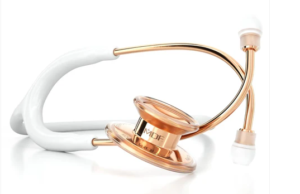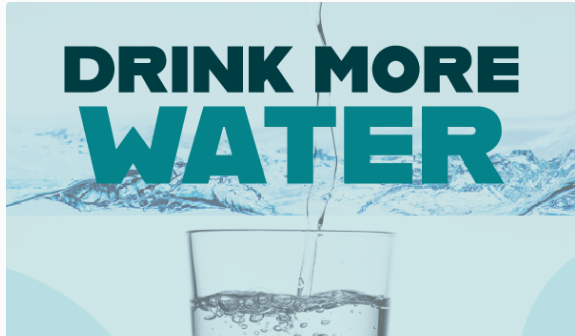Stay Hydrated: The Science of Water Intake
Staying hydrated is one of the factors that guarantees wellness and good health. Doing activities such as physically exercising or just sitting at the desk requires sufficient water intake to help perform body functions and keep you alert. The present review discusses quite important issues such as how much water one should drink and the role of water in proper nutrition. The clinical waters of good health should include water as it constitutes around 60% of the human being. It serves a lot of purposes, starting from controlling the heat of the body to including it within digestion and brain work. However, there are certain problems with receiving enough water among most of the population. Whether they are busy, do not even think about such basic things as hydration, or simply feeling a lack of thirst.
The article examines the effectiveness of hydration from the more science perspective, within the features, benefits as well as practical applications of proper water intake. By the end of this detailed article, you will see that having the recommended amount is not simply some pointers for health but rather an absolute necessity for the body and brain to function normally.

Features of Stay Hydrated: The Science of Water Intake
Aspects of Stay Hydrated: The Practical and the Theoretical of Water Apitong With careful understanding, it is acknowledged that water helps the body in its optimal activities; and, hence, it is not only about quenching the thirst. Here are the fundamental aspects that encompassed the meaning of water intake:
1- Safeguards Cellular Activities
Our body has numerous cells which help in carrying oxygen and the nutrients that are important for their activities. When there is not enough water, the cells are not able to perform their duties as they should causing weariness, poor thinking, and weakness on immunity.
2- Assists in Consumptive System
Water is also very important in the system because it helps to process food and utilize the constituents of the food. Eating is also made easier since it helps in preventing constipation by softening stool and enhancing movement in the intestines.
3- Body Temperature Regulation
Water, also known as the universal solvent, is involved in the production of sweat, which is responsible for cooling of the body. When the temperature increases, walls of sweat glands also of the skin pour some water in the form of sweat, which evaporates and brings down the temperature. Here some water is often reabsorbed which is difficult without taking enough water.
4- Stimulating and Eliminating toxins
Water is needed for the proper functioning of the kidneys, which are in charge of removing toxic waste products from the blood and eliminating them as urine. Such injurious necessities crop when sufficient water is not consumed resulting in the slow functioning of the kidneys.
5.An enhancement of cerebral strategies
Lack of water availability can have many negative impacts. Problems with memory, low concentration, fatigue, and other issues may stem from brain hypoperfusion and poor dehydration level. And even slight dehydration slumps cognitive skill, losing a focus in the activities that requires consistent alertness.
6. Skin Health Enhancement
Adequate water intake prevents excessive skin dryness, hence, your skin remains supple and healthy. These dry skin, lack of radiance and earlier appearance of wrinkles oare some attributed to lack of sufficient water.
Specialty of Stay Hydrated: The Science of Water Intake
Rehydration is not simply about taking water – this is how an individual recognizes the requirements of her/his body and maintains the equilibrium best appropriate for that body. And this is what makes it different.
1. Individualized Hydration
The amount of water needed differs on Gilbert factors like age, level of activity and the climatic conditions. For example, a person would encounter problems regarding their health living in hot and arid regions when a person living in temperate and moist regions would be perfectly healthy. So will people with an active lifestyle, especially athletes who sweat a great deal require enough water intake.
2. Different forms of hydration
Although water is considered as the best source of rehydration, quite a number of other fluids as well as food materials will serve as the sources of water. However, some non-conventional hydration sources are herbal teas, fruits like watermelon and cucumber.
3. Maintaining Fluid Levels
There are situations where water alone will not be adequate. Notably, electrolytic minerals include sodium, potassium and magnesium, all which aid in the regulation of body fluids during intense excretion and or during illness. In such cases of inadequate plain consumption of water, electrolyte based fluids are helpful.
4. Why People Fail To Optimize Their Hydration Status
Thirst is not the only symptom that signals dehydration. Most people will wait until they are already dehydrated, or worse, before they think there’s a need to drink water. And mild dehydration can cause mild symptoms such as headaches, dizziness and dry skin while severe levels can cause extreme conditions such as heat stroke.
5. Importance of Water in Our Lives: The Effects of Hydration on the Mood
It is clear that psychological wellness can be critically affected by an adequate consumption of liquid. Unable to hydrate effectively causes anxiety and depression and potential to become confused or irritable. Keeping yourself hydrated can benefit mood, energy and focus on tasks.
Uses of Stay Hydrated: The Science of Water Intake
Staying hydrated is not merely a blanket approach, let us say there are such different usages of careful hydration as being benefited in particular areas of daily life.
1. While Engaging in Physical Activities
Hydrating is important for everyone who has some physical involvement in sports and exercise. Water tempers the body by providing muscle with nutrients as well as replacing sweat lost. Hydration before, during and after the physical workout promotes enhanced performance and faster recovery.
2. In Controlling Weight
Water intake may help reduce body weight by keeping the user full, and increasing the rate of metabolism. It is typical for the organism to replenish fluids by eating food instead of drinking, feeling hungry even when it does not need to. Drinking water 45 minutes to 30 minutes before a meal also helps in controlling the amount of food to be eaten.
3. While Sick
This is particularly true when a person is sick because of a fever or severe diarrhea or vomiting as the body dehydrates faster than usual. Well, hydration helps to bring in that water and aids the immune system to deal with the illness. It helps remove waste products from the body as well, and even more efficiently.
4. For the Beauty of the Skin
Wider understanding of this issue should include the appeal of drinking water to many people and have them notice that their skin feels better. Water moisturizes the skin hence reducing the development of wrinkles and pallor, and helps in restoring a firm and even tone to the skin.
5. For the Improvement of Mental Abilities
The proper consumption of water helps people to be attentive€™ and maintain that attention for the entire day. Incorporating water regularly has been shown to enhance cognitive abilities, especially when engaging in activities that require prolonged attention or during tense situations.
Article Highlights of Water: Why Water is Essential, Article of the Month
Ideas of the main importance of hydration are quite simple: equilibrium and understanding that water is important for everything. The sovereignty of water in the body is such that it is not only quenched when one is thirsty but an optimum level of fluids intake is obtained for optimal body performance.
Be it handling physical activities, sustaining mental capacities or simply general well being, water remains a necessity with no limits to its importance. Efficient working of every cell in the body depends on the presence of water. Water contributes a lot to the healthy running of the body from heat regulation to the transportation of nutrition.
What is more, when adjusting her/his hydration level whether taking into account weather, temperature, activity or health, an individual enhances the performance of their body on the given day.
Pros and Cons of Stay Hydrated:
The Science of Water Intake Pros Cons Increases energy and helps in brain performance Overhydration can lead to hyponatremia. (depletion of Na+ in blood – hyponatremia = low levels of sodium in the patient’s blood) Benefits the digestive system and reduce the chances of getting constipation Can cause frequent trips to the bathroom Supports the skin and helps reduce dryness Some people may find it difficult to take and maintain adequate water intake Glosses over the ability to maintain the temperature of the body elimination of excess body fluid Removes poisons and chemicals that are highly dangerous to the blood. Takes a dependent toll on one’s lifestyle, as the person must ensure that he or she drinks enough water, and avoid both under and overeating.
Conclusion: Stay Hydrated:
The Science of Water Intake Staying hydrated does not mean only drinking whenever one feels thirsty. It means recognizing how much water is needed in the body, taking into of the workload, surroundings, and state of the individual. Balanced hydration supports all of the systems in the body including the brain, skin and the stomach-bowel system. This resource outline has addressed these issues defining the fundamentals of hydration such as the levels of water consumption that are medically sound, how sucking water impact on human wellbeing, how and why such as even slight fluid imbalance should be avoided. non-thirsty times when you would normally consume water just as in any addiction, without even wanting the crutch water.
By developing a habit of hydration, one can achieve the health of the body where it is healthy, energetic, and with a clear mind.
FAQs: Stay Hydrated: The Science of Water Intake
1. What is the drinking of water in a day?
It is commonly said that, in an average, one should drink around 8 cups (64 ounces) throughout the day, however, this differs across some individuals based on exercise level, weather, and health factors.
2. Will it be harmful if I drink an excessive amount of water?
Yes, too much intake of water can cause hyponatremia, a condition wherein the sodium level gets diluted.
